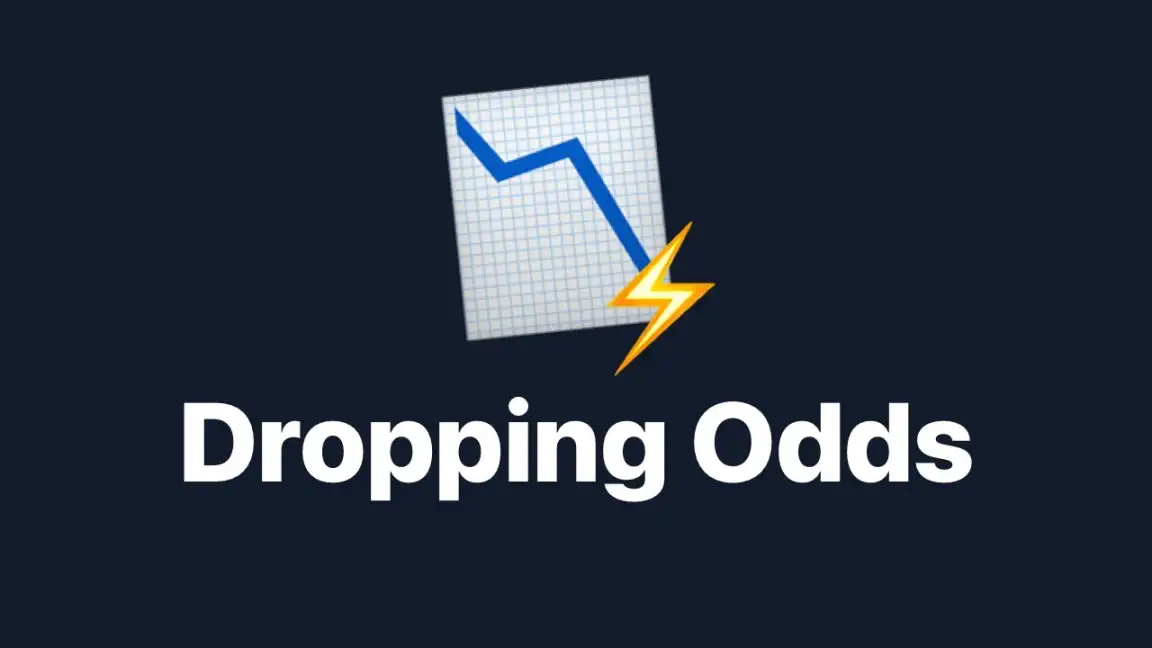What do Dropping odds indicate?How do you predict dropping odds?
What do Dropping odds indicate?

Dropping odds indicate that the odds for a certain event, usually in sports betting, are decreasing. This can occur for a variety of reasons, such as an increase in betting on one particular outcome, or new information becoming available that affects the perceived likelihood of the outcome. Dropping odds can be an indicator of potential value for bettors, as the odds may be more favorable before they adjust to reflect the new information.
Are negative odds better?
In sports betting, odds can be expressed in a variety of ways, such as decimal odds, American odds, and fractional odds. Negative odds are used in American odds and indicate that the selection is favored to win. The number without the negative sign is the amount you need to bet to win $100. So, negative odds are better than positive odds when betting on a favorite.
For example, -150 means a bettor must wager $150 to win $100, and +150 means a bettor will win $150 if they wager $100. In other words, the negative number represents how much you need to bet to win $100 and the positive number represents how much you will win if you bet $100.
However, it's important to keep in mind that the return on investment (ROI) may be lower with negative odds, as the bettor needs to wager more money to win the same amount as with positive odds.
How do you predict dropping odds?
Predicting dropping odds can be challenging and there is no definitive method to do so. However, there are several factors that can be considered when trying to predict them. Some of these include:
News and information: New information that affects the perceived likelihood of an outcome can cause odds to drop. For example, a key player getting injured or a team having a poor performance can affect the odds.
Betting patterns: If a large amount of money is placed on one particular outcome, it can cause the odds for that outcome to drop. This is because bookmakers will adjust the odds to balance their own risk.
Historical data: Examining past events and their odds can provide insight into potential future odds movements.
Opinion of experts: Experts in a particular sport or field can provide valuable insight into the likelihood of a particular outcome.
Software and tools: There are several software and tools available which can help you to predict dropping odds. FootballAnt use historical data, statistical analysis and machine learning to predict the changes in the odds.
It's important to remember that predicting dropping odds is not an exact science and many variables can affect the odds, making it hard to predict them with certainty. It's also important to note that past performance is not always an indicator of future performance.
Does negative odds mean losing money?
Negative odds in sports betting are used to indicate that a particular outcome is favored to win. They are represented by a minus sign (-) in front of a number, such as -150. This means that a bettor needs to wager $150 to win $100.
It does not mean that the bettor will lose money, but it does mean that the bettor will have to wager more money to win a smaller amount compared to a positive odds where the bettor will have to wager less to win a larger amount. It also means that the chance of the bettor winning is higher.
For example, if you bet $150 on a -150 odds and you win, you will get $250 ( $100 winnings + $150 wagered) but if you bet $100 on a +150 odds and you win, you will get $250 ( $150 winnings + $100 wagered)
It's important to remember that sports betting is a form of gambling and there is always a risk of losing money. It's important to approach it with caution, set a budget and not to bet more than you can afford to lose.
Is lower odds better than higher odds?
In sports betting, lower odds indicate a higher probability of the outcome occurring and a lower potential payout. Higher odds indicate a lower probability of the outcome occurring and a higher potential payout. So, whether lower odds or higher odds are better depends on the bettor's perspective and risk tolerance.
For example, if a bettor is betting on the outcome of a football match, the odds for the favorite team winning the match will be lower (for example, -150) compared to the odds for the underdog team winning the match (for example, +150).
A bettor who is risk-averse and wants to minimize the risk of losing money may prefer betting on the favorite team with lower odds, as it has a higher probability of winning. However, the potential payout will be lower.
On the other hand, a bettor who is comfortable with taking a risk and has a higher tolerance for losing money may prefer betting on the underdog team with higher odds, as the potential payout will be higher, even though the probability of winning is lower.
It's important to keep in mind that sports betting is a form of gambling and there is always a risk of losing money. It's important to approach it with caution, set a budget and not to bet more than you can afford to lose.